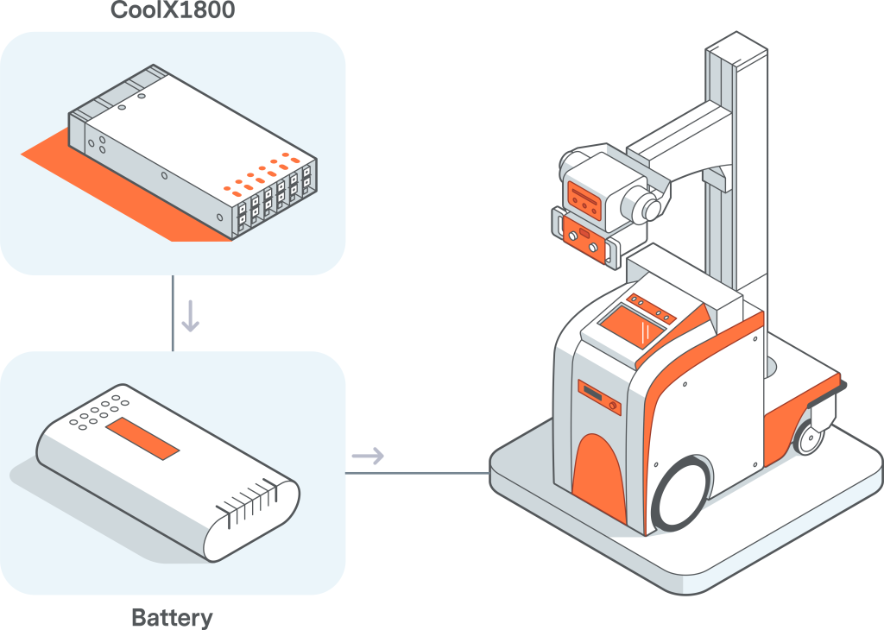Industrial Engineering in Industry 4.0 the Focus of the Diamond Jubilee National Convention and International Conference
投稿 10月 16, 2018 によって Gopal Mohanty
It was an honor for me to be a Keynote Speaker and Reliability Engineering Session Chair at The Indian Institution of Industrial Engineering Diamond Jubilee National Convention and International Conference. The theme of the conference was the “Role of Industrial Engineering in Industry 4.0 Paradigm.”
The mission of the convention, (held in September in Bhubaneswar, India) was to create a platform for exchange and dissemination of knowledge in the emerging field of Industry 4.0 and to engage practicing professionals and academic researchers at national and international levels.
Conference Themes, Presentations and Technical Papers
A number of renowned researchers and industry leaders from across the world delivered keynote addresses. Among other speakers, Prof. Jay Lee, the founding director of National Science Foundation (NSF) and University Cooperative Research Center (UCRC) on Intelligent Maintenance Systems, shared his current research on big data predictive analytics and cyber physical systems for intelligent maintenance, prognostics and health management (PHM), and Industry 4.0 systems.
Top management professionals participated in panel discussions. As many as 260 technical papers from India and abroad were presented in the technical sessions by academia and industry professionals. Fifty technical posters were displayed by student participants from all over the country.
The subjects debated at the conference included the changing role of industrial engineers over the last few decades. Presentations such as “Industry 4.0: A future possibility in centralized vibration-based condition monitoring of machines” and “Factory of the Future: Industrial or Cultural Revolution” were enthusiastically received. Other conference themes included:
- Building the Digital Enterprise
- Digitizing Productivity and Quality Engineering Systems
- Digitizing the Supply Chain Management systems
- Digitizing the intelligent manufacturing systems and smart factories
Industry 4.0 Concepts
Industry 4.0 is a comprehensive concept as well as a new trend in manufacturing (and relevant sectors), based on the integration of a set of technologies that enable ecosystems of intelligent, autonomous and decentralized factories and integrated products and services. The most commonly used terms associated with Industry 4.0, which is rapidly changing the industrial landscape, are Smart Manufacturing, the Internet of Things, Cyber-Physical Systems and Digital Transformation. The technologies involved are enabling horizontal and vertical value chain digitalization, innovation in products and services and new business model creation. The key business drivers of this transformation include improving customer experience, increasing speed-to-market and reducing total life cycle costs with uncompromised safety and efficacy of the products.
Benefits of Industry 4.0 Technologies in Manufacturing Medical Devices
In my keynote speech, I drew everyone’s attention to modernizing legacy systems in the medical device manufacturing industry. You see, most departments within medical device manufacturers operate under defined Quality Management Systems (QMS), the long-standing approach to ensuring applicable regulatory requirements are met. This practice is not sufficient to stay competitive in today’s global markets, which demand innovative products that are safe and effective for users. This legacy approach is, of course, vital for any successful company, but in this data-driven age of smart manufacturing and Industry 4.0, it is not enough.
I explained for medical device manufacturers to realize the full power of QMS and the processes behind them, they must embrace the technology available to them, including:
- The Internet of Things (IoT): Connecting more and more systems, devices, sensors, assets and people through networks ranging from wireless, low-power wide-area networks to wired, high-capacity networks.
- Mobile solutions: Including smartphones, tablets, wearable sensors and smart glasses.
- Cloud computing: Including low-cost processing and data storage solutions.
- Cyber-physical systems (CPS): Monitoring and controlling physical processes using sensors, actuators and processors, based on digital models of the physical world.
- Big data analytics and business intelligence: Turning data into actionable insights, which include early warning algorithms, predictive models, decision support, workflows and dashboards.
- Advanced manufacturing technologies: Including robotics and 3D printing.
I played an introductory video clip of Advanced Energy Industries and then continued with discussion of:
- Current medical device manufacturing regulatory framework and challenges
- Potential role of key elements of Industry 4.0 in medical device manufacturing
- Regulatory considerations for medical device manufacturing to adopt Industry 4.0 technology
Regulatory Considerations to Adopt 4.0 Technologies in Manufacturing Medical Devices
In order to implement Industry 4.0 technologies, the following regulatory requirements should be considered.
- Traceability of product requirements i.e. design and development to manufacturing to field, supplier to manufacturer, etc.
- Product configuration management to ensure the customized product requirements are flawlessly replicated
- Manufacturing process validation to produce highly customized products
- Customized product manufacturing repeatably and reliably
- Manufacturing records traceability and retention
- Validation for Reliable and Repeatable Production - Infrastructure relating IoT
- Computing technology embedded
- Communicate with production equipment
- Any deviation should be recorded and investigated
- Safeguarding data when moving off-premises
- Specific consideration for electronic systems per USA FDA Reg 21 CFR Part 11
Being part of the conference and sharing the regulatory requirements that would play a prominent role in Medical Device Manufacturing in Industry 4.0 environment was a great experience. Of course, please feel free to share your thoughts on this revolutionary technology. I look forward to hearing from you.


